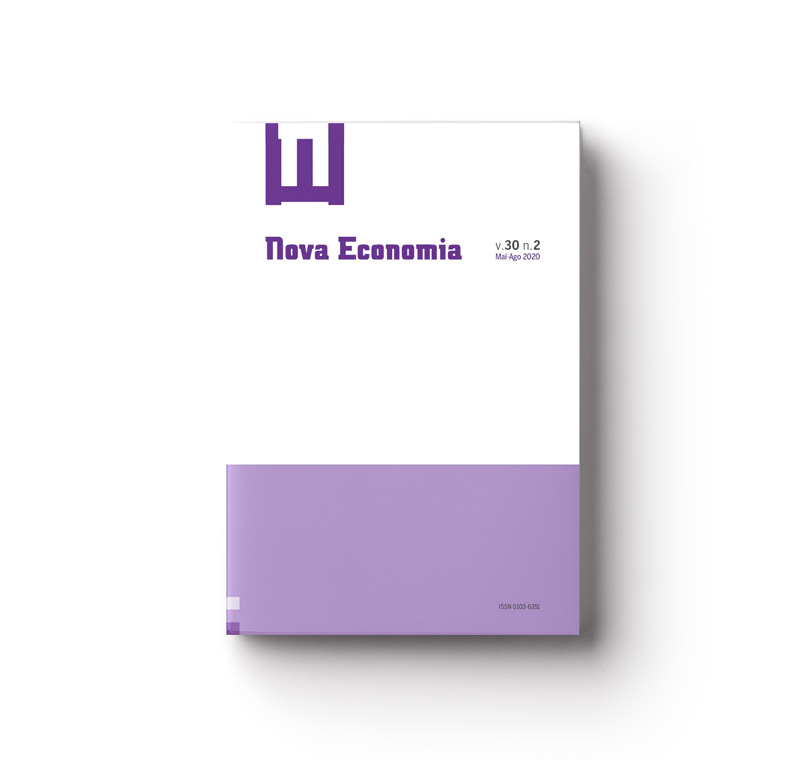Business cycles in the Brazilian industrial activity: An analysis on the time and frequency domain
Keywords:
Atividade Industrial, Análise Espectral, Co-movimentos, Ciclos Comuns, Tendências Comuns.Abstract
This article analyzes the monthly behavior of the industrial production of the states of Bahia, Minas Gerais, Pernambuco, Paraná, Rio de Janeiro, Rio Grande do Sul and São Paulo, in the period from 2002:01 to 2014:12. To this, was used the methodology of common trends and cycles of Vahid and Engle (1993). The tests prove the existence of two common trends and five common cycles. Deviations from the long-term equilibrium in the industrial activity of São Paulo influence the production trajectory of the other states studied, while permanent shocks in Rio Grande do Sul affect only the industrial dynamics of Paraná. To analyze the business cycles, were introduced tools from the spectral analysis, thus obtaining additional information regarding the synchronization of the short-term dynamics. The hypothesis of co-movements between the Paraná and São Paulo cycles was confirmed through frequency domain analysis.
Downloads
Published
How to Cite
Issue
Section
License
Copyright (c) 2020 Cristiano da Costa da Silva, Nicolino Trompieri Neto, Luiz Ivan de Melo Castelar, Erika Vanessa Alves da Silva

This work is licensed under a Creative Commons Attribution 4.0 International License.
Authors who publish with this journal agree to the following terms:
- Authors retain copyright and grant the journal right of first publication with the work simultaneously licensed under a Creative Commons Attribution 4.0 International License that allows others to share the work with an acknowledgement of the work's authorship and initial publication in this journal.
- Authors are able to enter into separate, additional contractual arrangements for the non-exclusive distribution of the journal's published version of the work (e.g., post it to an institutional repository or publish it in a book), with an acknowledgement of its initial publication in this journal.
- Authors are permitted and encouraged to post their work online (e.g., in institutional repositories or on their website) prior to and during the submission process, as it can lead to productive exchanges, as well as earlier and greater citation of published work (See The Effect of Open Access).




